
Latest Coronavirus Disease COVID 19 News and Research
How an ignored white blood cell may cause COVID-19 deaths
News-Medical speaks to Professor Lola Eniola-Adefeso about her research investigating how an ignored white blood cell may cause COVID-19 deaths.
Characterizing "re-positives" in recovered COVID-19 patients
The novel coronavirus pandemic has been spreading silently or explosively in almost every country of the world, causing almost half a million deaths and nearly 8.5 million reported cases in just six months. While much is known about the virus and the illness by now, far more remains unclear. One such is the prevalence and persistence of antiviral immunity following severe acute respiratory syndrome coronavirus 2 (SARS-CoV-2) infection.
Community transmission of SARS-CoV-2 in San Francisco during lockdown
Early this year, the COVID-19 outbreak began in the United States in a muted manner, simmering over a few weeks to emerge as a full-fledged epidemic in New York and other states. Now, a new study published on the preprint server medRxiv* in June 2020 reveals the pattern of community spread throughout the sheltering-in-place period in San Francisco.
Discovery of biomarkers that can influence COVID-19 severity
The novel coronavirus, now called the severe acute respiratory syndrome coronavirus type 2 (SARS-CoV-2), is the causative agent of the dreaded coronavirus disease (COVID-19). It was first discovered in Wuhan City, China, back in late December 2019 and has since then spread throughout the globe.
Researchers find prothrombotic antibodies in patients with COVID-19
Even as the COVID-19 pandemic continues to spread across the world, researchers are still trying to understand the many ways in which it can manifest and its pathogenesis. A new report published on the preprint server medRxiv* in June 2020 shows that one possible mechanism of disease in COVID-19 is the production of antiphospholipid antibodies.
Human trials to commence using SARS-CoV-2 antibodies from cow's blood
The coronavirus pandemic has sparked a sense of urgency as it actively spreads across the globe. The number of reported cases has now surpassed 8.46 million people, with a death toll of more than 453,000. Scientists and pharmaceutical companies are racing to develop an effective treatment and vaccine against the severe acute respiratory syndrome coronavirus 2 (SARS-CoV-2).
Nanosponges attract coronavirus away from lung cells, study shows
Imagine if scientists could stop the coronavirus infection in its tracks simply by diverting its attention away from living lung cells? A new therapeutic countermeasure, announced in a Nano Letters study by researchers from Boston University's National Emerging Infectious Diseases Laboratories and the University of California San Diego, appears to do just that in experiments that were carried out at the NEIDL in Boston.
Blood types and COVID-19 risk confirmed
Blood type may play a pivotal role in driving disease severity among coronavirus disease (COVID-19) patients. Genetic analysis of COVID-19 patients has shown that people with blood type O seemed to be protected against severe disease. In contrast, those with blood type A may experience complications tied to the viral infection.
Widespread testing could help stop the spread of COVID-19
The world is now in the grips of a historic pandemic. The death toll from the novel coronavirus has climbed to more than 117,000 in the United States and 448,000 around the world.
Study examines the impact of urban density on spread of COVID-19
A new study suggests that denser places, assumed by many to be more conducive to the spread of the coronavirus that causes COVID-19, are not linked to higher infection rates.
Mutational targets of SARS-CoV-2 receptor-binding domain for vaccine-antiviral development
The COVID-19 pandemic has spread throughout the whole world within six months, causing millions of infections and hundreds of thousands of deaths. Yet there is no effective vaccine or antiviral to deal with it.
Crystal structure of SARS-CoV-2 protease-inhibitor in complex with a Chinese herb Shikonin
The severe acute respiratory syndrome coronavirus 2 (SARS-CoV-2) virus has been spreading rampantly over the whole world, infecting millions of people (over 8.45 million at last count), with over 452,000 deaths, as of June 19, 2020. It causes a broad spectrum of disease manifestations, from asymptomatic disease to severe or even fatal respiratory symptoms.
Novel SARS-CoV-2 antibody cocktail impeccably mimics human antibody response
By using both humanized mice and convalescent patients, the researchers from the US and Singapore successfully generated non-competing and highly potent monoclonal antibodies against severe acute respiratory syndrome coronavirus 2 (SARS-CoV-2) spike protein that could potentially be combined to form antibody cocktails. Their groundbreaking paper is published in the leading research journal Science.
Throat gargling may be beneficial during the COVID-19 pandemic
Researchers from Chang Gung University College of Medicine, Taiwan, have suggested that throat gargling may have beneficial effects during the coronavirus disease 2019 (COVID-19) pandemic.
First genome-wide CRISPR screen reveals genes that control SARS-CoV-2 infection
By performing a genome-wide CRISPR screen on the severe acute respiratory syndrome coronavirus 2 (SARS-CoV-2), U.S. researchers identified novel proviral genes and pathways, and highlighted host genes that may regulate coronavirus disease (COVID-19) pathogenesis, as well as revealing potential targets for novel treatment approaches. Their findings are currently available on the bioRxiv* preprint server.
COVID-19 pandemic affects sexual and reproductive health of young people
Social distancing and limited access to contraceptive and abortion care during the COVID-19 pandemic is affecting the sexual and reproductive health of adolescents and young adults according to a new study by researchers at Columbia University Mailman School of Public Health and Rutgers University.
DFG establishes interdisciplinary commission to strengthen pandemic research
Against the background of the current coronavirus pandemic, the Deutsche Forschungsgemeinschaft (DFG, German Research Foundation) is to establish an interdisciplinary commission for pandemic research.
Certain patients who receive hospital care for COVID-19 exhibit clear signs of brain injury
Certain patients who receive hospital care for coronavirus infection (COVID-19) exhibit clinical and neurochemical signs of brain injury, a University of Gothenburg study shows. In even moderate COVID-19 cases, finding and measuring a blood-based biomarker for brain damage proved to be possible.
SARS-CoV-2 in breast milk can be inactivated using Holder pasteurization
Researchers in Germany have shown that human milk infected with severe acute respiratory syndrome coronavirus 2 (SARS-CoV-2) can be pasteurized using a standard method to ensure it is safe for breastfeeding.
Survey: 9 in 10 Americans concerned pharma will leverage COVID-19 to increase drug prices
Nearly 9 in 10 U.S. adults are "very" (55%) or "somewhat" (33%) concerned that the pharmaceutical industry will leverage the COVID-19 pandemic to raise drug prices.
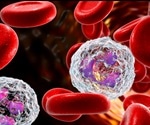
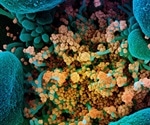

_35d5ad10268b4875bf21742b42a65885-150x125.jpg)
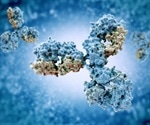

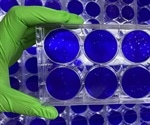
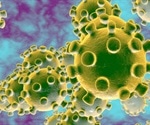
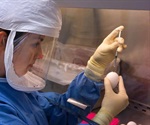
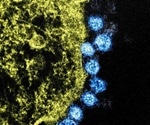
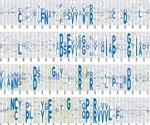

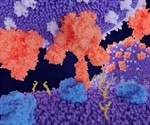




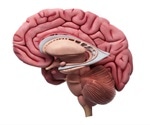























.png)












No hay comentarios:
Publicar un comentario